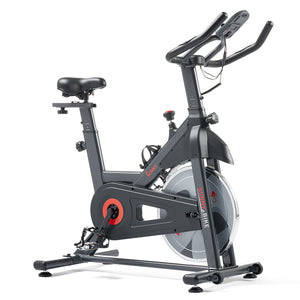A good night's sleep is incredibly important for overall health. In fact, getting regular, quality sleep can increase exercise performance (1), improve brain function (2), and lower your risk for disease (3). It’s estimated that nearly 50-70 million Americans suffer from sleep disorders (4), and according to a new study, the stress of COVID-19 may be contributing to less restful sleep at night (5). If you’d like to get better sleep at night, here are 5 proven tips to improve your quality of sleep.
1. Bright Light Exposure During the Day
Your body follows a natural clock called your circadian rhythm. It helps you stay awake or tells your body when it’s time to sleep. Getting natural bright sunlight exposure throughout the day, helps to regulate your circadian rhythm to improve your energy during the day, and improve your quality and duration of sleep at night (6).
2. Reduce Blue Light Exposure in the Evening
Exposure to light during the day is a good thing, but exposure to light during the evening can mess with your circadian rhythm and the release of melatonin, a hormone that helps you relax and get better sleep. Devices with screens like TV, computers, and phones emit high amounts of blue light, you can either avoid devices like these at least an hour before bed or invest in blue light glasses which block blue light (7).
3. Relax and Clear Your Mind
Sounds simple enough but being mindful about taking time to relax is the key here. Saying I’m going to relax and taking the time to do activities that actually help you to relax are different. Try relaxing techniques like reading a book, listening to music, meditating, deep breathing, journaling, or drinking hot tea. Find what works best for you and try to get into a regular relaxing routine.
4. Take a Hot Shower or Bath
Taking a relaxing bath or shower before heading to bed can help to relax and improve overall sleep (8). Aim to take one up to 90 minutes before your bedtime for best results!
5. Melatonin Supplement
Melatonin is a hormone produced naturally in your body and helps relax your body and tells it when it’s time to sleep. Melatonin supplements can be a helpful sleep aid if you have trouble falling asleep or sleeping soundly through the night. Start with a low dose and take it 30-60 minutes before bed and see if that helps you get a better night of sleep. They can also be helpful if you have trouble sleeping when traveling, this will help keep you on your regular schedule.
I hope these helpful tips gave you some ideas for how to get better rest! In addition, it’s so important to take the time for yourself to regularly exercise, eat well, and practice self-care - especially during COVID. Take care and rest up!
(1) “Effects of Sleep Deprivation on Performance: A Meta-Analysis”. National Library of Medicine National Center for Biotechnology Information, 1996, https://pubmed.ncbi.nlm.nih.gov/8776790/. Accessed 2 November, 2020.
(2) “The Effects of Poor Quality Sleep on Brain Function and Risk Taking In Adolescence”. National Library of Medicine National Center for Biotechnology Information, 2013, https://pubmed.ncbi.nlm.nih.gov/23376698/. Accessed 2 November, 2020.
(3) “Sleep Duration and Cardiovascular Disease Risk: Epidemiologic and Experimental Evidence”. National Library of Medicine National Center for Biotechnology Information, 2016, https://pubmed.ncbi.nlm.nih.gov/26972035/. Accessed 2 November, 2020.
(4) “Sleep Disorders and Sleep Deprivation: An Unmet Public Health Problem”. National Library of Medicine National Center for Biotechnology Information, 2006, https://pubmed.ncbi.nlm.nih.gov/20669438/. Accessed 2 November, 2020.
(5) “Effects of The Covid-19 Lockdown on Human Sleep and Rest-Activity Rhythms”. Current Biology 2020, https://www.cell.com/current-biology/fulltext/S0960-9822(20)30837-X. Accessed 2 November, 2020.
(6) “Blue-Enriched White Light in The Workplace Improves Self-Reported Alertness, Performance and Sleep Quality”. National Library of Medicine National Center for Biotechnology Information, 2006, https://pubmed.ncbi.nlm.nih.gov/16842544/. Accessed 2 November, 2020.
(7) “Blue Blocker Glasses Impede the Capacity of Bright Light to Suppress Melatonin Production”. National Library of Medicine National Center for Biotechnology Information, 2006, https://pubmed.ncbi.nlm.nih.gov/16842544/. Accessed 2 November, 2020.
(8) “Bathing Before Sleep in The Young and In the Elderly”. National Library of Medicine National Center for Biotechnology Information, 1999, https://pubmed.ncbi.nlm.nih.gov/10408315/. Accessed 2 November, 2020.

























